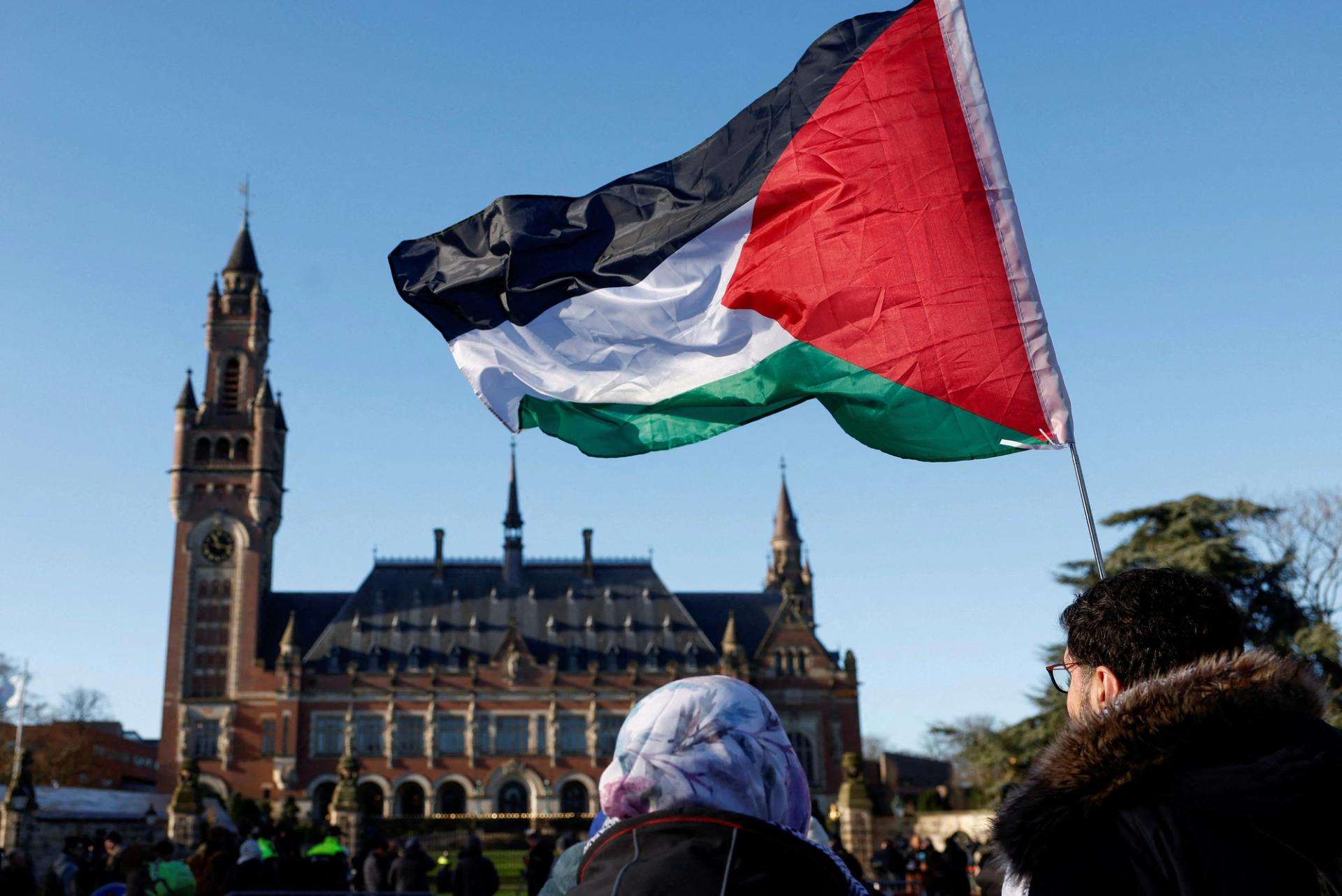The News
The International Court of Justice (ICJ) opened a hearing into Israel’s occupation of Palestinian lands, as international anger grows over Israel’s offensive on Gaza.
The hearing will result in a non-binding advisory opinion, and follows a ruling last month from the U.N.’s top court that Israel must work to prevent any acts of genocide in its war with Hamas.
Israel’s military operation in Gaza has entered its fifth month despite mounting anger from the international community and waning support from key allies, including the U.S.
SIGNALS
Israel won’t attend hearing into occupation
Israel has not sent a delegate to the ICJ’s hearing, Israeli outlet Ynetnews reported. Though Israel is a signatory to the Geneva Convention, which gives the court the authority to examine possible breaches of the agreement, it does not recognize the ICJ’s jurisdiction. Israeli officials have said the hearing only serves to slam “Israel and [harm] its legitimacy,” Ynet noted, adding that the decision at the end of the hearing could be used to justify boycotts against Israel in the wake of the war. “This is a headache Israel does not need,” a source that spoke to the outlet said.
Experts view Israeli occupation of Gaza as ongoing
The ICJ case will examine Israel’s 57-year occupation of the West Bank, east Jerusalem, and Gaza. Palestinian representatives have said that Israel has violated three tenets of international law by annexing portions of land, undermining Palestinians’ right to self-determination, and imposing a system of apartheid. Officials from the United Nations and other analysts have also said that Israel’s occupation of Gaza did not end — as Israel claims — after Israel disengaged from the enclave in 2005, since Israel controls the majority of essential infrastructure in Gaza, one expert told Haaretz.
Global outcry against war has not stopped Israel’s military objectives
Israel plans to push ahead with a campaign in the crowded city of Rafah, near the Gaza Strip’s Egyptian border, unless Hamas returns all remaining hostages by mid-March. The ground offensive would begin at the start of the Muslim holy month of Ramadan, Israeli leaders said, if its conditions weren’t met. Unclear, however, is whether “Israel is insisting on both a release of captives and a surrender from Hamas to stop the attack on Rafah,” Bloomberg noted. Israel has repeatedly said it would not stop its operations in Gaza until Hamas is eliminated, an objective that has been widely seen as impossible by analysts monitoring the war.

